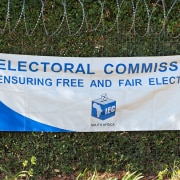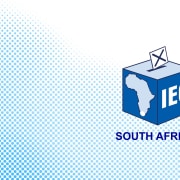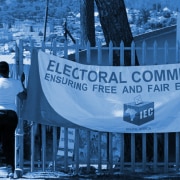|
Getting your Trinity Audio player ready...
|
Victory has come just in time for independent candidates wishing to contest the general elections in 2024, in the form of a lifeline handed down by the Constitutional Court (ConCourt) on 4 December 2023 in two separate judgments. The applications were brought by the Independent Candidate Association (ICA) and One Movement South Africa respectively, asking for direct access to challenge certain provisions of the Electoral Amendment Act.
The dispute between the various parties, the apex court explained, arose after Parliament enacted the Act earlier this year. Among others, said the court, it “amended item 1 of Schedule 1A … to allow for independent candidates to contest for seats in the National Assembly.”
Handing down judgment in the One Movement application, the ConCourt ruled that the requirement for independents to acquire a 15% signature quota to register with the Independent Electoral Commission (IEC) ahead of polls, is unconstitutional. They now need only 1 000 signatures from people in the areas where they reside, down from the previous requirement in the Act of a minimum of 10 000, to take part in what are likely to be the most contested elections in the country’s democratic history.
The Electoral Amendment Act has been a bone of contention in public forums, with potential independent candidates and civil society organisations alike criticising its spirit of exclusivity. The ConCourt accordingly ruled that the National Assembly should revisit the clause in the Act that makes the signature requirement unconstitutional.
“Parliament has been given 24 months to cure the constitutional defect and in the interim 1 000 signatures for each region in which the candidate intends to contest an election will apply,” noted the Department of Home Affairs in a statement. Home affairs minister Aaron Motsoaledi had opposed the application.
Parly 200/200 seats arrangement unchanged
The court also dismissed the application, brought forward by the ICA, for a review of Parliament’s 200/200 national and regional seats rule. The ICA had asked the court to consider changing it to 350/50, to give independent candidates more room to manoeuvre in the 200 regional seats tier.
In a statement that accompanied the ruling, the court said: “… independent candidates and political parties compete for the same quota in regional elections and the votes carry the same weight. There is no differentiation in respect of regional seats. The Court further drew attention to the fact that while the applicant accepted that compensatory [national] seats should only be reserved for political parties, they rejected the reservation of 200 seats on the basis that independent candidates need double the votes that political parties need to win a seat since a vote for a political party counts twice.”
The Constitution allows for a maximum of 400 seats in the National Assembly, split in half between the 200 compensatory seats that only political parties can contest for, while the other half are regional seats for which both political parties and independent candidates can contest.
“The Constitution does not specify the national and provincial election system. Instead, it outlines the requirements that the electoral system should comply with. These requirements include the need for the system to be based on a national common voters’ roll, provide for a minimum voting age of 18 years, and result, in general, in proportional representation. The Constitution also caps the number of seats available for contestation in the National Assembly at 400 and requires that national legislation provide a formula for determining the number of members in the National and Provincial Assembly. Pursuant to these provisions, Parliament passed the Electoral Act,” read the statement.
Electoral Commission will take action
The IEC, which was one of the respondents, welcomed the judgment, saying it “has always been of the view that the distribution of seats of the National Assembly between the compensatory tier and the regional tier was rational and satisfied the constitutional requirement for general proportionality.
“The important confirmation of the Constitutional Court is that the contestants in the regional tier of the elections are subject to the same number of votes per seat. Furthermore, that no votes of independents are to be transferred to political parties.”
The commission added that it would now finalise adjustments to its signature requirements portal.








